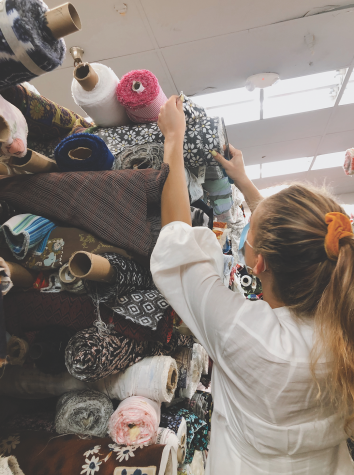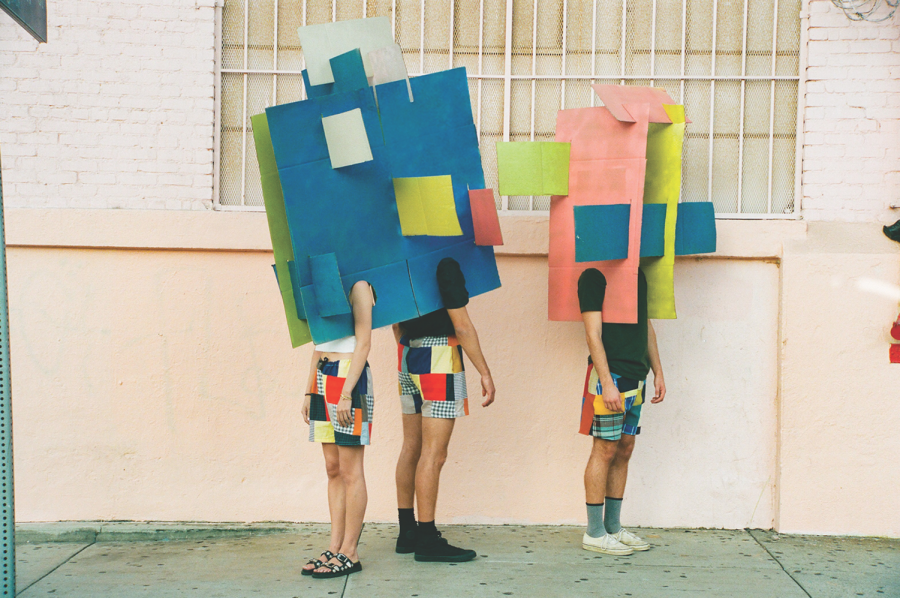Fashion Forward
Fashion plays an important part in how we choose to express ourselves; creating fashion that sustains our planet is essential.
On average, it takes 1800 gallons of water to make a single pair of jeans. The fashion industry contributes to our earth’s dried up water sources, and polluted rivers and streams—all the while, 85% of all textiles get thrown into the dump each year.
While fashion to the average person is a way to unleash creativity and communicate a narrative to others about our identity, to many designers, having a minimal environmental impact is becoming equally as important.
Oddli is an LA-based company whose mission is to create beautiful clothing items that are sustainably manufactured. With the formation of Oddli in 2020, Chief Creative Officer (CCO) Jensen Neff was able to combine her love for fashion and her passion for renewable living. While at Stanford University, she met Ellie Chen and the two soon bonded over their shared interest in sustainable fashion. What started as the two women’s senior capstone project quickly became a real company, and Oddli was born.
“Our [love for sustainability] came from growing up in the natural world and believing in it so much.” Neff said.
When researching the gaps in the fashion industry and brainstorming the type of clothing she wanted to make, Neff was drawn to deadstock. This material is the excess fabric that is typically thrown away if a clothing company does not use it.
“[We had the] challenge of, how can we take this 14 million pounds of material that has been thrown away every day, and get over the roadblock of it’s non-uniformity,” Neff said.
Partners Neff and Chen were able to overcome this challenge by deciding that their first clothing line would be patchwork apparel that was made from patches of deadstock. This way, no deadstock would go to waste and each clothing item would be unique.
Neff also found throughout the development of Oddli that sustainability was not as straightforward of a process as simply using recycled materials. She discovered that there was a lack of regulation in the clothing industry, leading to issues such as seamstresses being paid below minimum wage.
“Because the industry is so under regulated it has had to be me and [Chen] creating the regulation ourselves, even if it costs us more,” Neff said. “The industry doesn’t demand it and people are just getting away with unethical stuff.”

But it is this commitment to sustainability in every step of Oddli’s development that has led to the company’s success. Neff emphasizes that Oddli will continue to grow and bring even more to the world of sustainable fashion in the future.
“I think that patchwork was a great first step but we’re excited to expand because there’s so many issues in the fashion industry and each of them are opportunities to tackle,” Neff said.
Not only are full-fledged companies like Oddli finding ways to create a more sustainable fashion industry, but students at Paly are also taking big steps in the right direction.
Paly Senior Anusha Sarkar started designing her own clothing when she was younger in a sketch book that was always filled with ideas; many of which she never thought would go beyond the page. Over the years, her passion for fashion only grew stronger.
“Fashion is the expression of emotion. Fashion is also fabric and yarn and dye and material. [It’s] the harmony between creativity and construction technique,” Sarkar said.
In the summer of 2019, Sarkar attended a Fiber Science and Apparel Design course at Cornell. There she was inspired to use her creativity in her designs toward helping create a better world through fashion, and through creating her own clothing line. After studying several vendors, she decided on a sustainable apparel mill in Louisiana, obtained her first bolts of material, and got to work.
Although her brand, Scout, was only launched in the Summer of 2020, Sarkar hopes to grow her company to raise awareness about the treatment of our world. Sarkar aims to help others feel as though they have left their mark on the world through expressing themselves through a community that works together for a better tomorrow.
Like Neff, Sarkar understands the various layers of what it means to be a renewable fashion source. “To me, sustainability isn’t just about having a ‘sustainable garment’ but it also extends to the work force and how the people in the factories are treated,” Sarkar said. “Sustainability is also relevant when sourcing materials, where they are coming from, how that contributes to the world’s carbon footprint. The ultimate goal of sustainability, and sustainable fashion is to preserve the world we live in today.”
It all breaks down to the idea that we have been living as if we don’t plan on seeing another day on our planet. We have been taking resources without replenishing or giving back to our environment. So next time you go out to buy a brand new pair of jeans, think about what goes into that piece of clothing and consider buying it from a renewable clothing brand to do your part in contributing to a more sustainable future.
Photos courtesy of Jensen Neff and Anushka Sarkar

2020-2021 - Staff Writer
2021-2022 - Editor-in-Chief
I love the idea of combining stories and design, so I knew that C-Mag was going to be the perfect...
2019-2020 - Staff Writer
2020-2021 - Business Manager
Hear more about me!







